Brazilian sirado coffee beans origin story introduction Brazilian sirado coffee taste flavor characteristics
Brazil is the world's largest exporter of coffee, with 21 states and 17 states producing coffee, but four of them produce the largest, accounting for 90 per cent of the country's total: Parana, Sao Paulo, Minas Gerais and Espirito Santo. In the southern state of Minas Gerais, the Cerrado region, also known as Serrado, is the oldest coffee producing area in Brazil with the best climatic conditions. And this time we're going to learn about Syracuse.
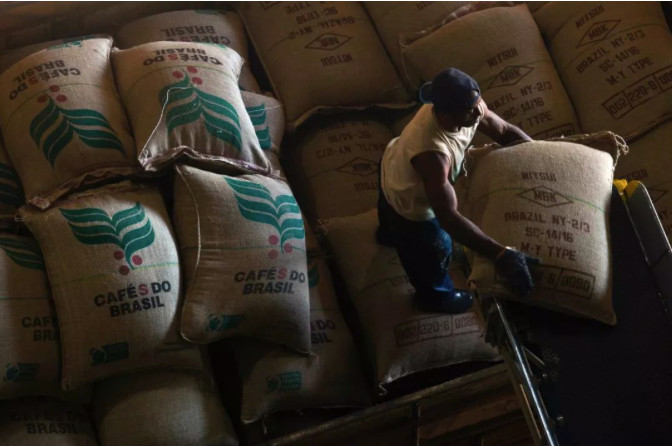
Brazilian Hilado coffee beans, one of the more commonly used in front street coffee, Brazilian coffee beans are added to the front street mix beans to increase the richness and balance the taste. Of course, in the former street food bean series, there is a Brazilian Hillado red bourbon coffee bean, which is loved by many guests for its rich and smooth chocolate nut taste.
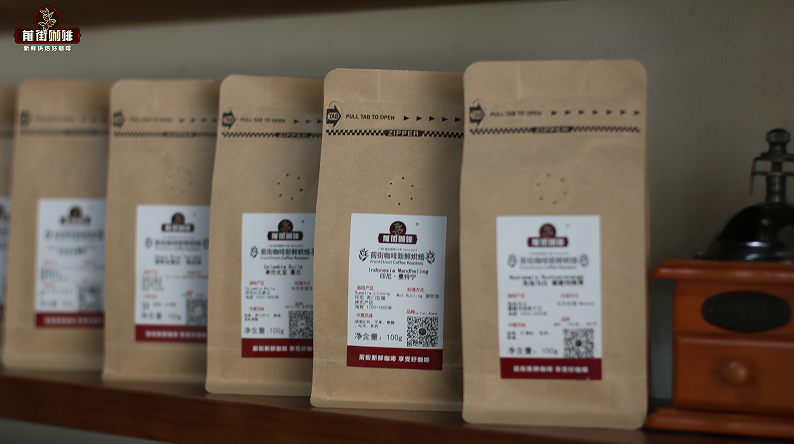
Coffee producing area of Hillado, Brazil
The state of Miraz is located in the eastern and coastal areas of southern Brazil, where Syracuse is located. As early as 30 years ago, the region of Hirado was not known to the world; it was once a desolate mountain located quietly in Brazil, so Hirado meant "barbaric" in Portuguese. But now Syracuse is a famous coffee producing area. Syrador Cerrado actually occupies 22% of the total area of Brazil's prairie, deep in the interior of Brazil, the Syrador coffee producing area referred to in Qianjie is not the entire Syrador prairie, it is only limited to coffee growing areas in the central and western Minas province above 1000 meters above sea level, can be called Syrador coffee producing areas. This area is the essence of the Hirado prairie, high altitude, fertile soil, to grow sweet, mellow thickness and high cleanliness of boutique coffee beans.
Its coffee is mechanized on a flat plateau about 1000 meters above sea level. Its unique soil and rich groundwater are essential ecological conditions for the production of high-quality coffee. The coffee farmers who pioneered the land in the early days combined modern agricultural concepts with Hirado agricultural technology, overcame the harsh natural environment, and transformed this "barbaric land" into a field for producing high-quality coffee, and became a pillar of local economic income.
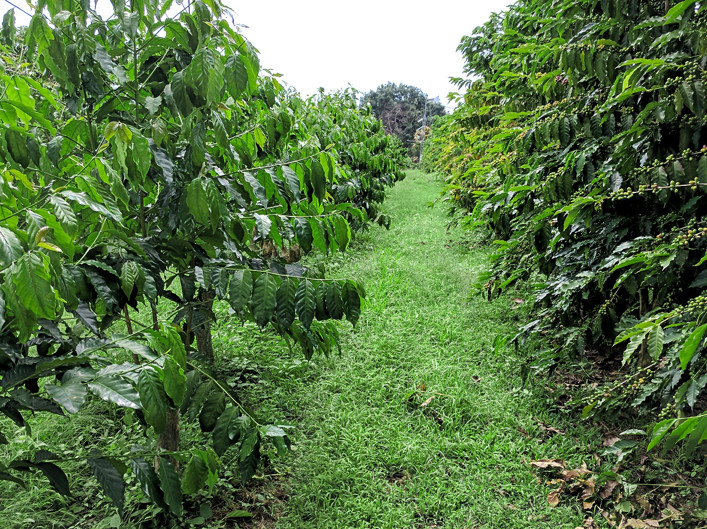
Organic Farm in Hirado, Brazil
In Hirado, in addition to the unique soil and climate, there is also a special phenomenon, that is, when you grow coffee near, you will always find one or two farms where livestock are raised. The existence of the farm is the characteristic of the structure of the Sirado agricultural community. The weeds in the coffee fields are a good feed for livestock, and the manure of livestock on the farm is the high-quality organic fertilizer for coffee trees. The whole ecological environment is balanced, so there are often traces of small animals and earthworms on the ground, and the farms and ranches near the coffee growing areas are one of the typical landscapes of the Hirado coffee producing area.
Therefore, at present, Brazilian Syrador coffee is synonymous with high-quality coffee. In 2005, the high-quality Arabica coffee harvested in Sirado was officially certified as "Sheila Coffee" by the Pakistani government according to international standards and claimed to be recognized. If you want to use the title of Syrador in the region, you must pass the certification test and production quality. The evaluation of raw beans should include certification of producing areas, elevation of production areas, identification of varieties, best soil, and best agricultural technology to meet these conditions, and in terms of quality, beans score more than 75 points through the evaluation method of SCAA before they can be called Syrador.
Grading characteristics of Brazilian coffee beans
On the other hand, because of the flat and monotonous landform in Brazil, most coffee farms are less than 1000 meters above sea level, and it is customary to use the sun-exposed planting method, which is not in line with the high-altitude shade planting required by high-quality coffee beans. coincidentally, however, it has developed a unique Brazilian soft bean flavor with low acidity and heavy nutty flavor, sweetness and mellowness, and no obvious flower and fruit aroma. But for coffee lovers, Brazilian coffee has neither outstanding advantages nor obvious defects. This kind of coffee, which has a peaceful taste, low acidity, moderate mellow, light sweetness and chocolate flavor, is the best test for taste buds. Brazil, on the other hand, happens to take advantage of the mixing of all these soft flavors, dividing coffee into five grades to interpret the unique, mild and supple Brazilian soft bean aesthetics, which are StrictlySoft, Soft, Softish, Hardish and Rioy to grade the quality of beans.
In recent years, Brazil has cleverly demonstrated the characteristics of Brazilian coffee with this classification, and also pointed out a way for the development of Brazilian high-quality coffee; today's soft bean aesthetics has replaced the traditional impression of Brazilian mild coffee. Good Brazilian coffee should reflect the slightly sweet nuts, low acidity and good consistency and soft taste. The beans in the Syrador area are officially famous for this flavor. Most of the coffee in this producing area is exported to Europe and America, which is synonymous with Brazilian boutique coffee.
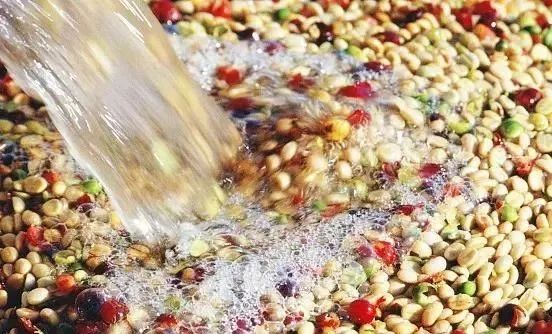
Brazil likes the Laddo method.
Half-sun treatment, after screening suitable coffee fruit, remove the peel, pulp and part of pectin, with a small amount of pectin to air until the moisture content is 12%.
In fact, half-sun treatment is very similar to honey treatment. For example, several Costa Rican coffee beans in the front street are famous for honey treatment. Honey treatment is only used by Costa Rica to define half-sun treatment, while Costa Rica is more refined in honey treatment. It is divided into yellow honey, red honey, black honey, and so on. So gradually, the term "half-sun" is not as famous as "honey treatment".
The method of brewing Brazilian Hilado coffee beans in the front street.
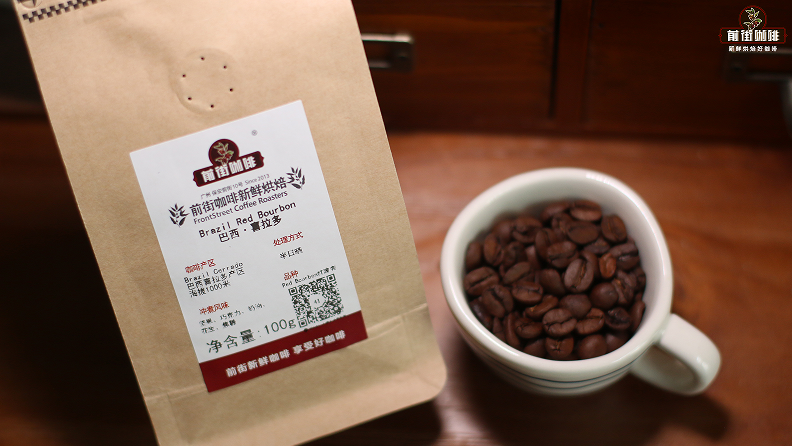
Brazil Sirado Red Bourbon
Country: Brazil: Hilado altitude: 1000 m Variety: red bourbon treatment: half sun
Flavor: nuts, chocolate, cream, peanuts, caramel
Qianjie cooking parameters: use Kono filter cup, 88 ℃ water temperature, 15 g powder, 1:15 powder / water ratio, medium and fine grinding (Chinese standard 20 sieve pass rate 70-75%).
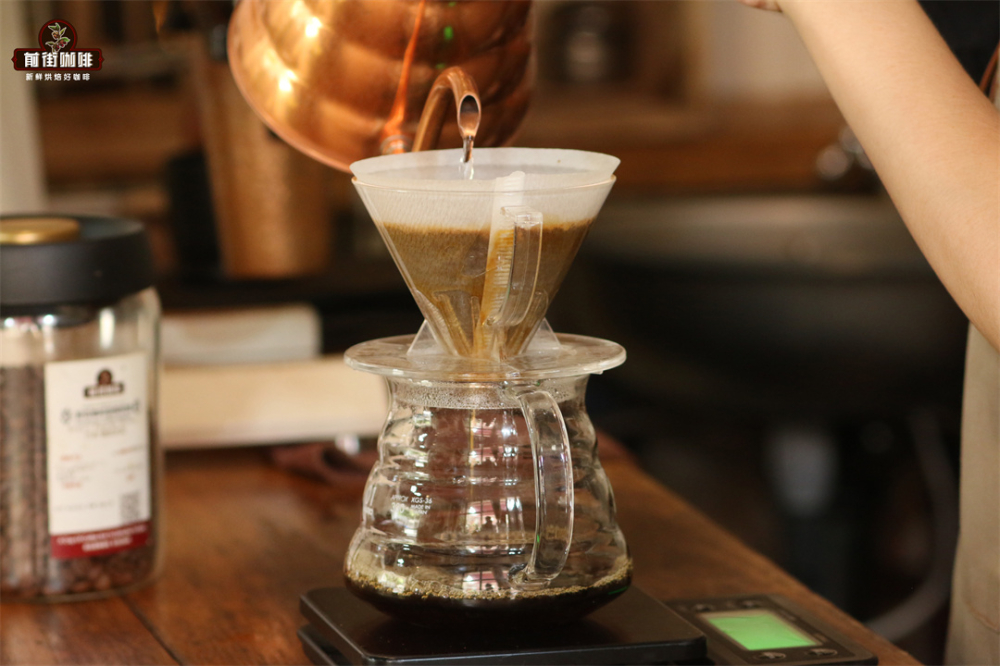
Deep-roasted coffee beans to highlight the mellow feeling of coffee, Qianjie will choose Kono filter cup to brew.
The characteristic of Kono filter cup is that it has the function of soaking, which can be used to extract more coffee substances and enhance the mellow taste.
Because of its few ribs and located at the low end, the filter paper can be attached to the filter cup to achieve the effect of limiting air flow, so as to slow down the flow speed and increase the contact time of gouache.
When the water temperature is 86-88 ℃, the lower cooking temperature can avoid excessive extraction of miscellaneous flavor of coffee beans, because the deeper the roasting degree of coffee beans is, the more miscellaneous smell will increase.
Qianjie uses segmented extraction, 30 grams of water is steamed for 30 seconds, small water is injected around the circle to 125 grams, when the water level is about to be exposed to the powder bed, the water injection is stopped to 225 grams, and the extraction time is 2 minutes.
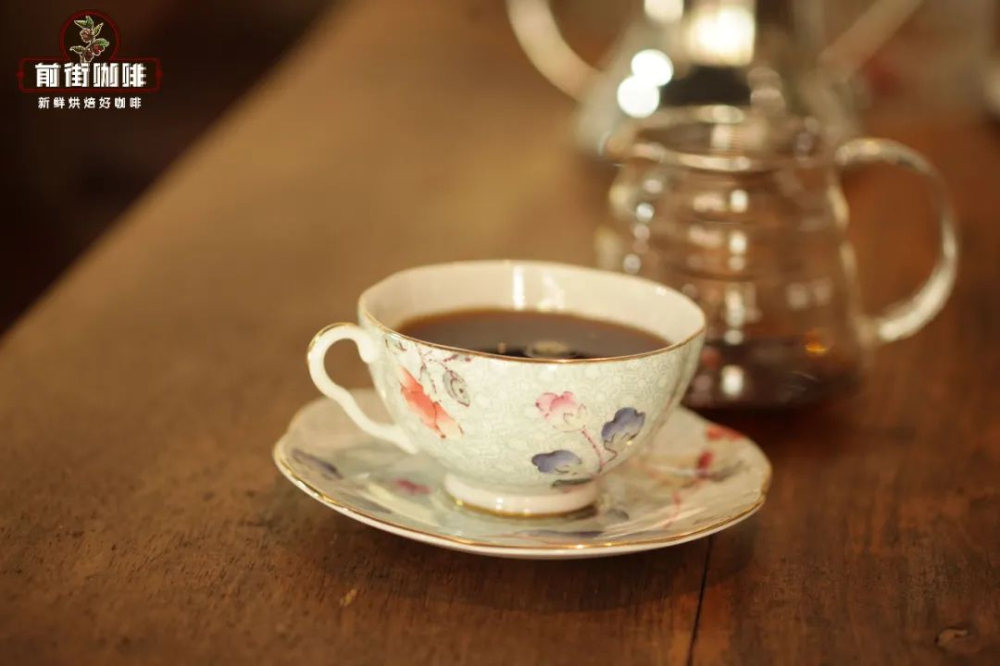
The entrance of Syrador coffee has obvious sweetness, with a hint of lemon aroma, with a strong nutty flavor, the latter part of the performance has an obvious dark chocolate flavor, the overall feeling is more round.
Important Notice :
前街咖啡 FrontStreet Coffee has moved to new addredd:
FrontStreet Coffee Address: 315,Donghua East Road,GuangZhou
Tel:020 38364473
- Prev
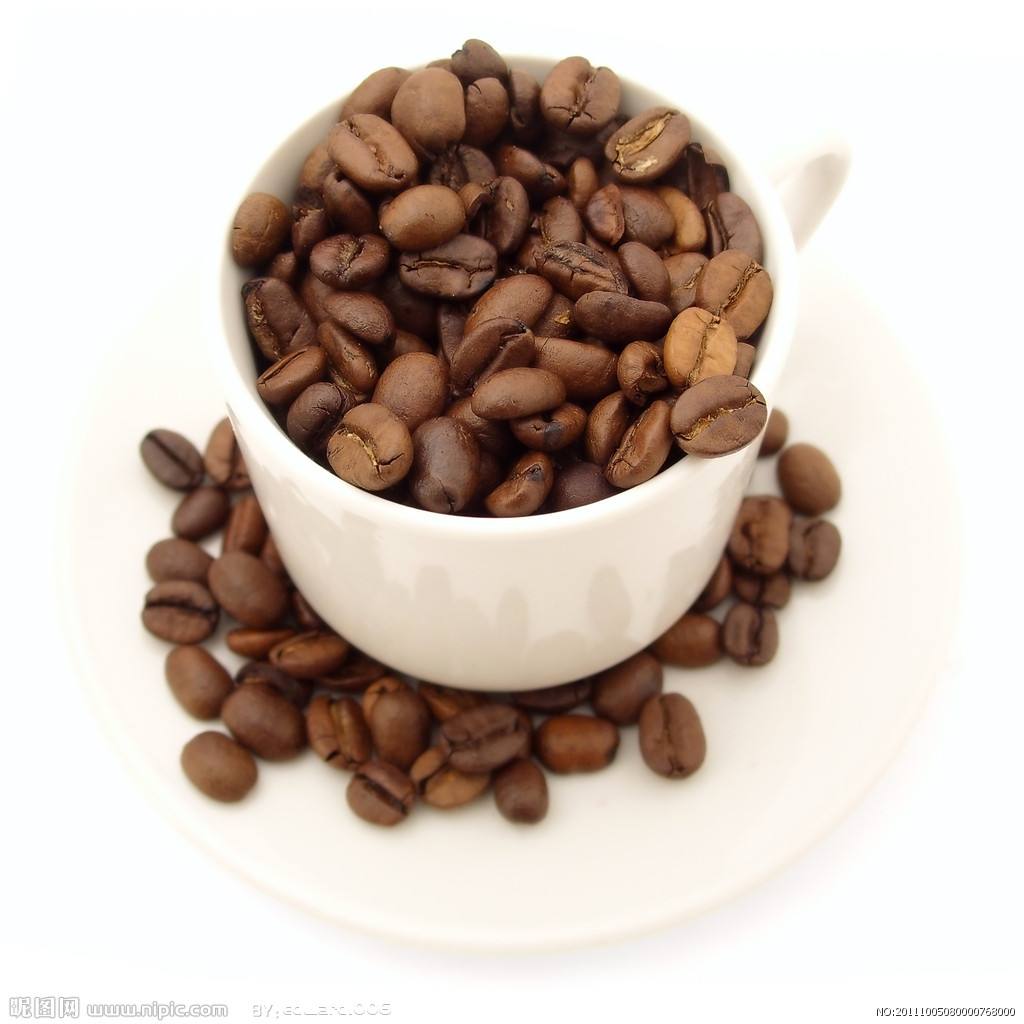
The flavor of Brazilian coffee, the quality of Brazilian coffee beans
Follow Cafe (Wechat official account vdailycom) found that Beautiful Cafe opened a small shop of its own, which can be hailed as the world's largest coffee producer and exporter in the coffee continent. Since about ten states in the vast territory adopt mass production, in order to make up for the regional gap and quality gap, Brazil has set its own grading benchmark in order to stabilize the quality of Central and South American coffee beans.
- Next
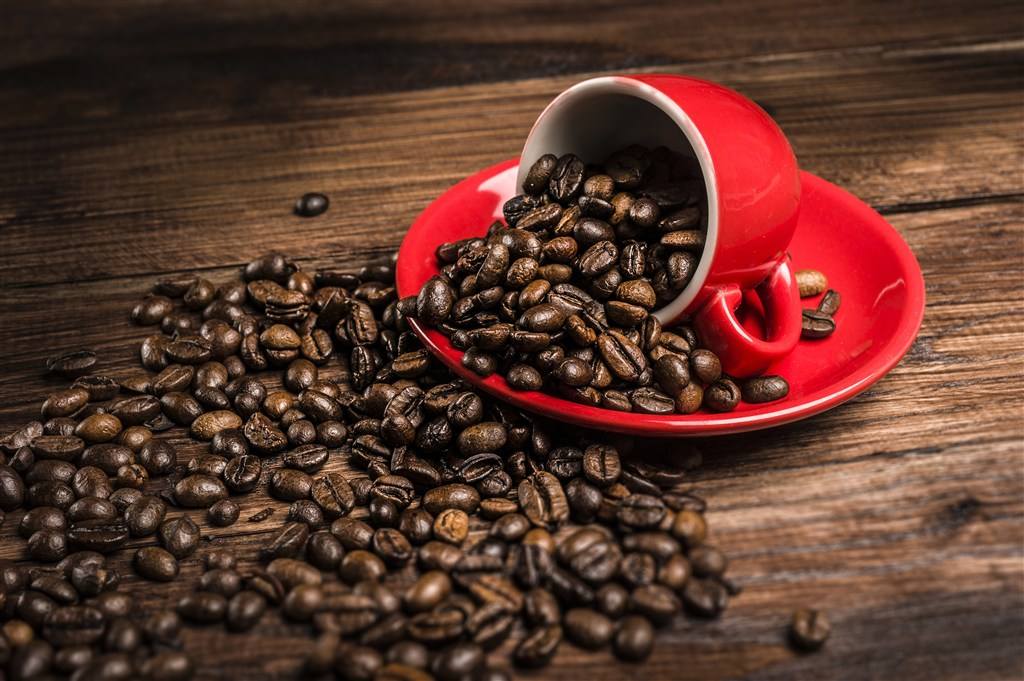
A brief introduction to the treatment of Yellow Bourbon in Hiladow Valley Manor, Brazil
Following Cafe (official Wechat account vdailycom) found that Beautiful Cafe opened a small shop of its own. Brazil is vividly compared to the giant and monarch of the coffee world. Brazil has 26 states and one federal district, 17 of which produce coffee beans. Brazil is the world's largest coffee producer and the world's largest coffee consumer after the United States. Brazil Syrador yellow
Related
- Detailed explanation of Jadeite planting Land in Panamanian Jadeite Manor introduction to the grading system of Jadeite competitive bidding, Red bid, Green bid and Rose Summer
- Story of Coffee planting in Brenka region of Costa Rica Stonehenge Manor anaerobic heavy honey treatment of flavor mouth
- What's on the barrel of Blue Mountain Coffee beans?
- Can American coffee also pull flowers? How to use hot American style to pull out a good-looking pattern?
- Can you make a cold extract with coffee beans? What is the right proportion for cold-extracted coffee formula?
- Indonesian PWN Gold Mandrine Coffee Origin Features Flavor How to Chong? Mandolin coffee is American.
- A brief introduction to the flavor characteristics of Brazilian yellow bourbon coffee beans
- What is the effect of different water quality on the flavor of cold-extracted coffee? What kind of water is best for brewing coffee?
- Why do you think of Rose Summer whenever you mention Panamanian coffee?
- Introduction to the characteristics of authentic blue mountain coffee bean producing areas? What is the CIB Coffee Authority in Jamaica?

